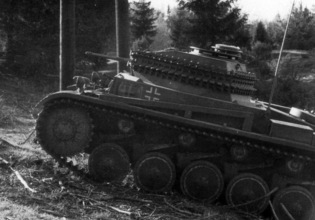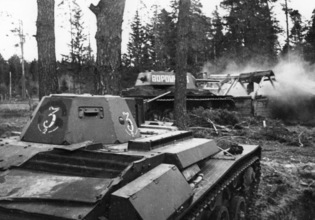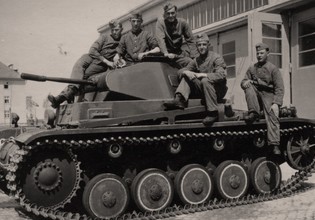As practice shows, the temptation to make up your own tank is great. Sadly (or thankfully), few people are destined to become tank designers. Here is where limitless human imagination steps in to create more «improved» or completely fictional projects than there were real tanks made.
Most of these made up tanks and SPGs belong to Germany. This is not surprising, since German dreams of Wunderwaffen firmly lodged themselves in people's heads. However, a lot of made up tanks were «invented» for Germany's enemies. There are a few of these vehicles in World of Tanks, but this article is not only dedicated to them. There were plenty of authors around the world, including during the war. Of course, some of these tanks were only partially fictional.
KV-VI Behemoth
IS-152
Object 430-II
SU-8
SU-122A
Bagirov's Tank
Mini IS
Light Tank T49
Heavy Tank T110E5
T25/2
T25 AT
T28 Concept
T28 Prototype
T110E3 and T110E4
FV215
Conqueror Gun Carriage
CIA's Tank
14TP
Markowski's Tank
The KV-6 is the classic Soviet Wunderwaffe, one mention of which can get you banned from some communities. This vehicle was created by Brian Fowler, which put up a model of it up on the track-link website on July 19th, 1997. The six-turret tank with a crew of «fifteen men and one commissar» was an obvious joke. The story about how the rear turret had a firefight with the center turret because of fog made this obvious enough.
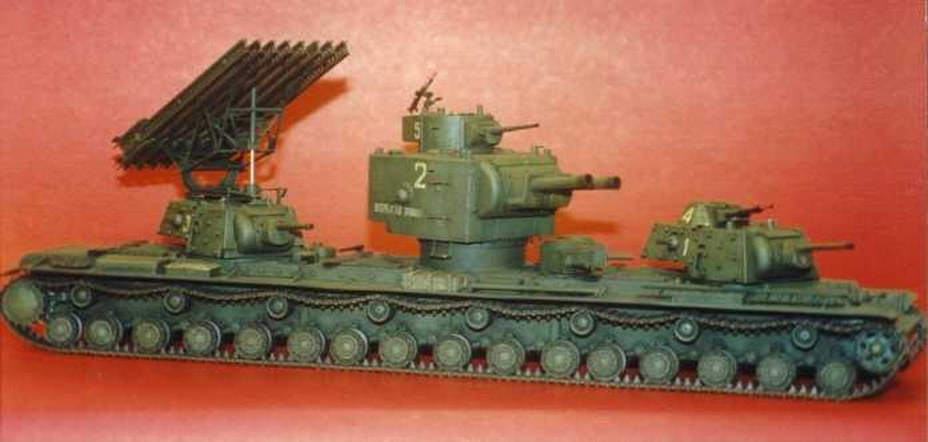
Nevertheless, there were some who believed in it. The tank appeared in several books and encyclopedias. The most interesting thing about this story was that it had a grain of truth. In 1942, engineer Osokin proposed a "tank cruiser" with a main turret that also had dual 152 mm M-10T guns from the KV-2. The total number of turrets was the same as on the Behemoth: six. Oskin's design was even more monstrous than the KV-VI.
By the way, the name of Fowler's «invention» was also real. The improved version of the T-150 tank was going to be built under this index in 1941.
This was the first Soviet tank that was made up for a computer game. This happened in late 1999, when the Panzer Front tank simulator was released for game consoles. Alongside real tanks, the game's designers included a number of made up ones. The E-79 is the best known among them, but the most interesting Soviet tank was the IS-152.
While the E-79 gained a cult following, its opponent was not so lucky. It was rather illogical, as the gun installed in it was worse than the standard D-25 gun in the IS-2 tank. The design was original, but there was nothing else special about it.
The Soviet tech tree in World of Tanks is the only tree of a «major» nation without a completely made up tank or SPG. There are, however, vehicles that had to be reconstructed based only on a textual description. The «Object 430 Variant II» is one of them. This tank is mentioned in the minutes of a meeting at factory #75 dated March 8-10th, 1953. This was the discussion of the future Object 430.
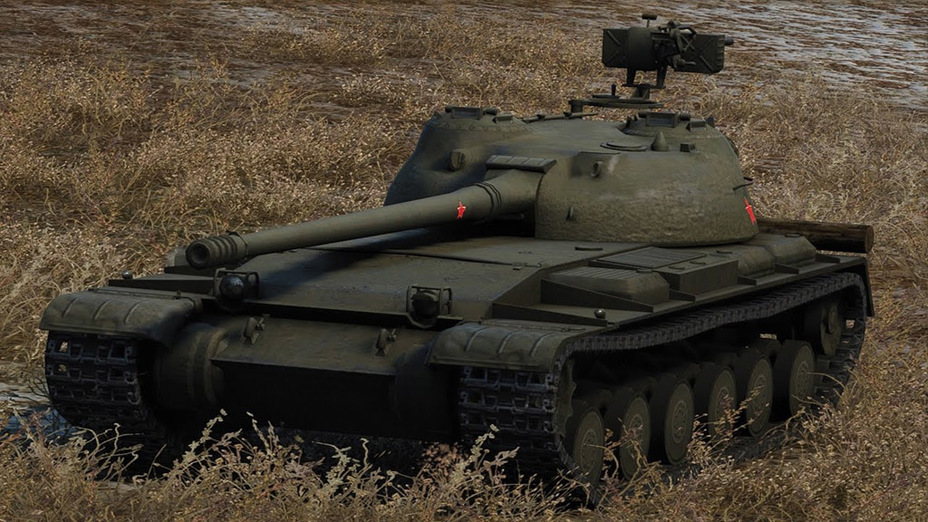
Two variants were discussed in the meeting. The second variant had its turret in the rear of the hull, with the driver also housed in the turret. The vehicle was very similar to the Object 416 SPG, which was introduced into the game as a medium tank. Enough technical details were mentioned during the discussion that it was possible to recreate its model. This was far from the only project of the 1950s that placed the entire crew in the turret or put the turret in the rear. These ideas were worked on by several design bureaus.
The need to keep game balance means that some vehicles end up significantly different from their real life prototypes. The SU-8, a real project of an SPG on the T-28 chassis, is a victim of such a transformation. According to the design, the self propelled chassis would carry a 76 mm 3-K AA gun. In the game, the SU-8 became a mini SU-14, which was also initially designed to use T-28 components.
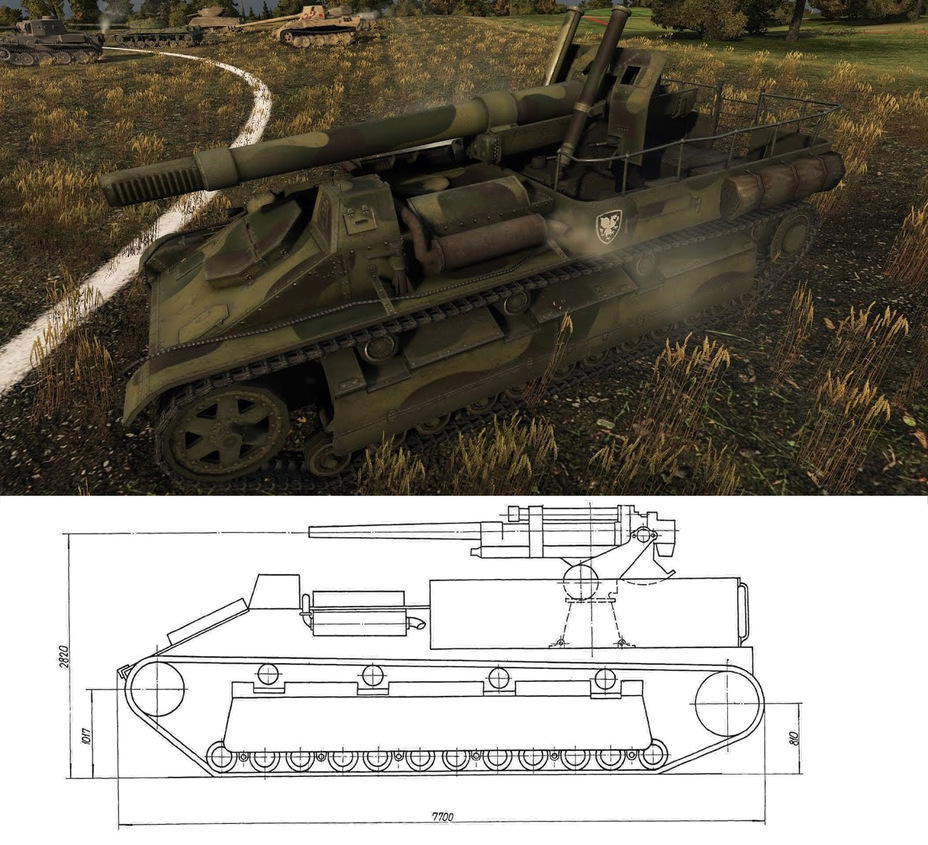
The SU-8 in the game looks similar to its real life version, but the fighting compartment and guns are different. To be fair, there was a real project of a 152 mm gun-howitzer on the T-28 chassis. It was called L-5, but the design differed significantly from the SU-8 and SU-14. It's enough to say that the gun was facing backwards.
The SU-122A is also the subject of many accusations. Even though its name is arbitrary, this is not a made up tank. Its design process began in 1944 at factory #38 under the direction of M.N. Schukin. The reason for this was that the SU-76M, also designed under Schukin, was often used for indirect fire, but the 76 mm HE shell was not powerful enough. The Soviets also captured some Wespe SPGs, an excellent example of a light SPG.
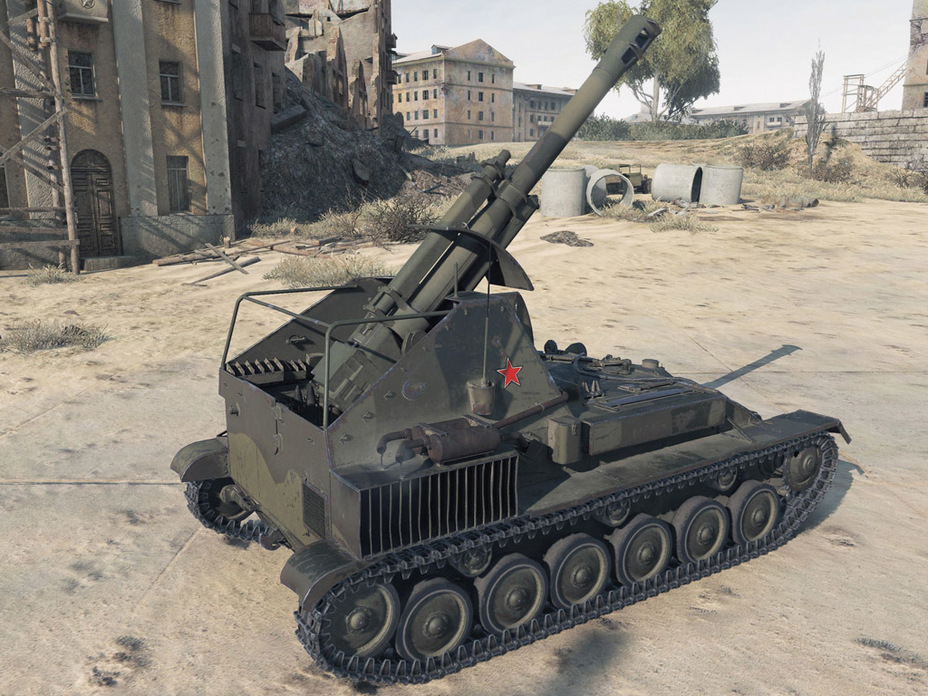
The Red Army had no 105 mm howitzers, so the 122 mm M-30 howitzer was chosen. However, the design of a SU-76M with a 122 mm howitzer went nowhere, as factory #38 was moved to Kharkov in 1944 to fill out factory #75.
All sorts of tanks of various designs, sizes, and weights were the result of lazy work of intelligence services or intentional misinformation. For example, German intelligence frequently reported on Soviet tanks that weighed 100 tons or more.
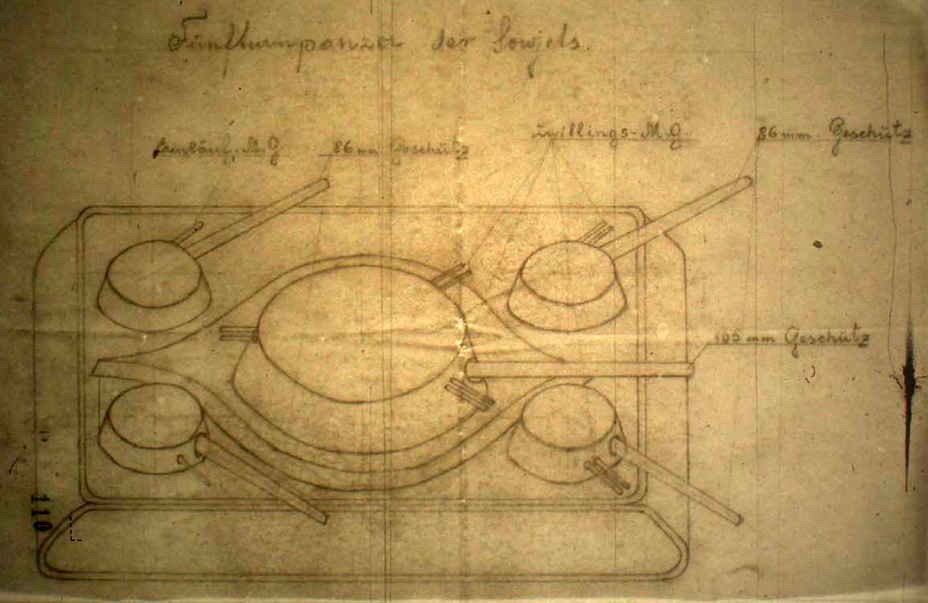
A superheavy tank that Gefreiter Garip Bagirov made up for the Germans is one of those tanks. This steel beast was allegedly produced in Ashgabat. You can judge its feasibility on your own: it had 5 turrets and was armed with 86 and 105 mm guns, as well as a dozen machineguns.
German spies weren't the only ones who discovered information about unconventional Soviet tanks. Other intelligence services partook as well. The Swedes received information about this tank in 1949. The report spoke of a tank with unusual characteristics being built in Leningrad. With a mass of 25 tons, it had front armour up to 25 cm thick. It carried a 90-120 mm caliber gun.
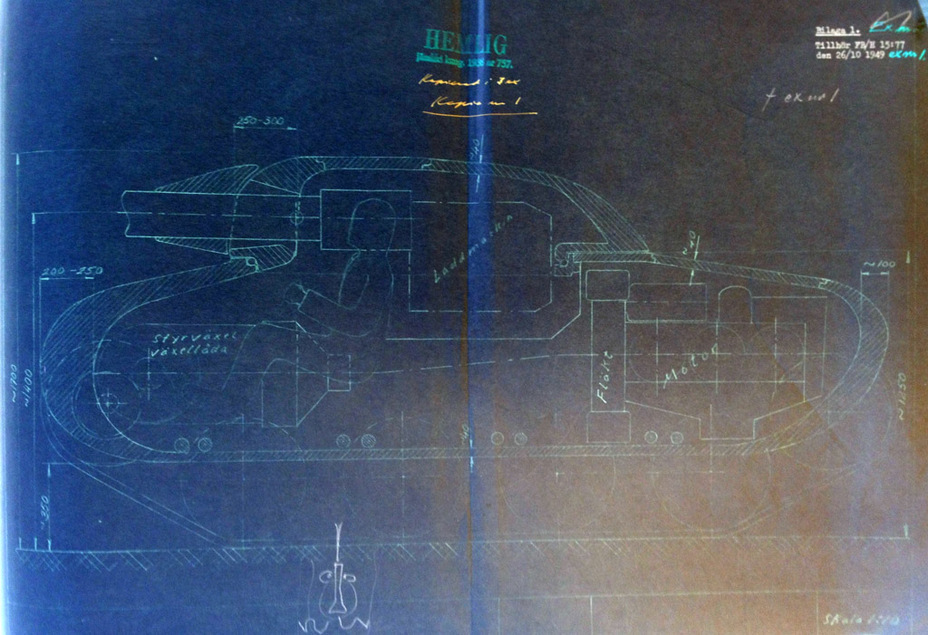
It's unclear where Swedish intelligence discovered such a tank, but it's even more surprising that they missed information about the very real IS-3, which Sweden only learned of in the spring of 1950.
This light tank made a lot of noise in its time. Accusations that this tank is made up were common. In reality, this tank existed, and survived to this day. The T49 was a modernization of the M41 light tank. It also used a 90 mm gun, which is the standard configuration in the game.
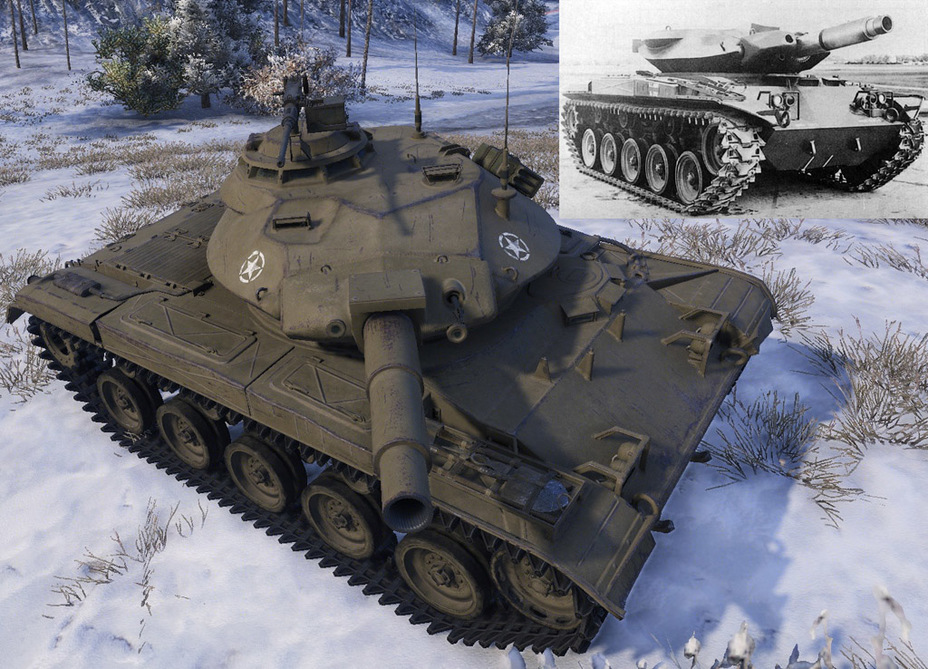
At the same time, there are some differences between the game tank and the real tank. In the game, the 90 mm gun was not enough for the T49, and the variant with the other gun is much better known. This was also a reality, as the M41 chassis was used to test the XM551 turret. In other words, the accusations of a completely made up tank are incorrect.
The T110E5 tank is another hotly contested vehicle. Its story begins in 1954, when a conference dedicated to further development of American heavy tanks was held in Detroit. Several designs were discussed in the conference, including projects TS-2, TS-5, TS-6, and TS-31. The TS concept was supposed to result in an optimal heavy tank design that would be brought to the prototype stage within two years.
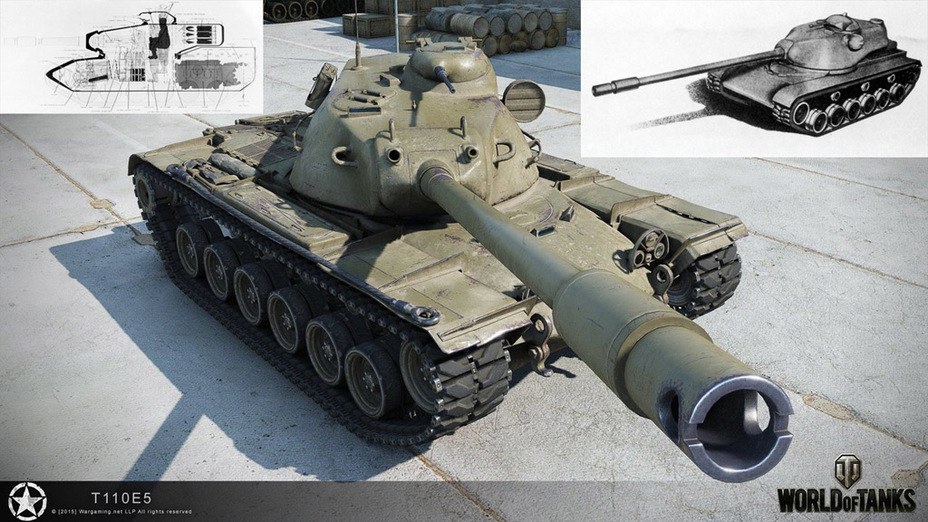
The hero of this chapter, the US-31, was initially designed as a turretless tank with a T123E1 gun. The TS-31 idea was taken up by the Chrysler Corporation, which was beginning production of the M103 Heavy Tank. The combined efforts of Chrysler and the Detroit Arsenal resulted in around 10 designs, including a «fifth» one. Nearly every design had alternate versions. The rear part of the tank, devoid of the «hump» is called into question, but the design was redone so often that such arguments are senseless, especially considering that the tank never made it past the model stage.
The American tank destroyer branch is the most «made up» of the game's vehicles. This is due to the large gap between generations of American tank destroyers. Nevertheless, the T25/2 is not a completely made up vehicle. The American military was really working on a tank destroyer on the medium tank chassis.
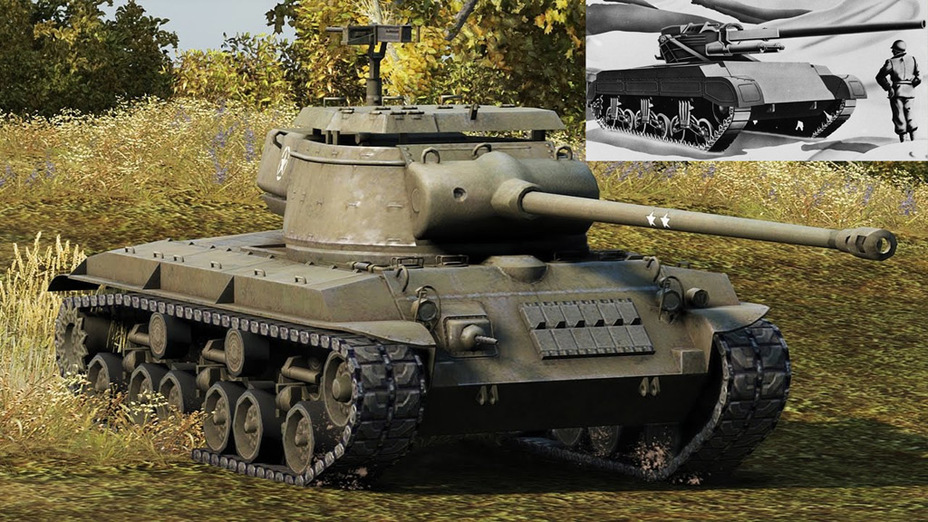
The issue was that the design was completely different, and the chassis was taken from the T23 medium tank. The designers of World of Tanks were forced to modify it to fit it into the game.
The second tank destroyer on the T25 medium tank chassis is much closer to what American engineers were working on. The vehicle did not get far in the design process, and work did not move past a layout model. Nevertheless, it's clear that the tank destroyer was very similar to Soviet and German tank destroyers.
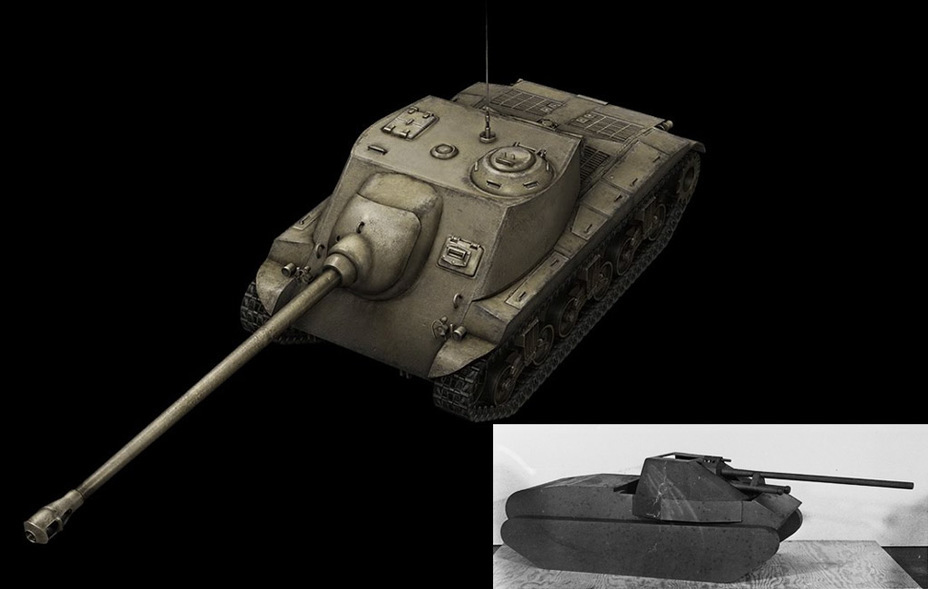
As with the tank destroyer that had a 90 mm AA gun in a 360 degree turret, work did not move past models. This vehicle is the result of the game designers' rich imaginations.
The long story of the T28/T95 resulted in four whole versions of this vehicle in World of Tanks. Let's open the series with the T28 Concept. This is the first variant of the vehicle that was built on the M6 heavy tank chassis and widely used cast armour.
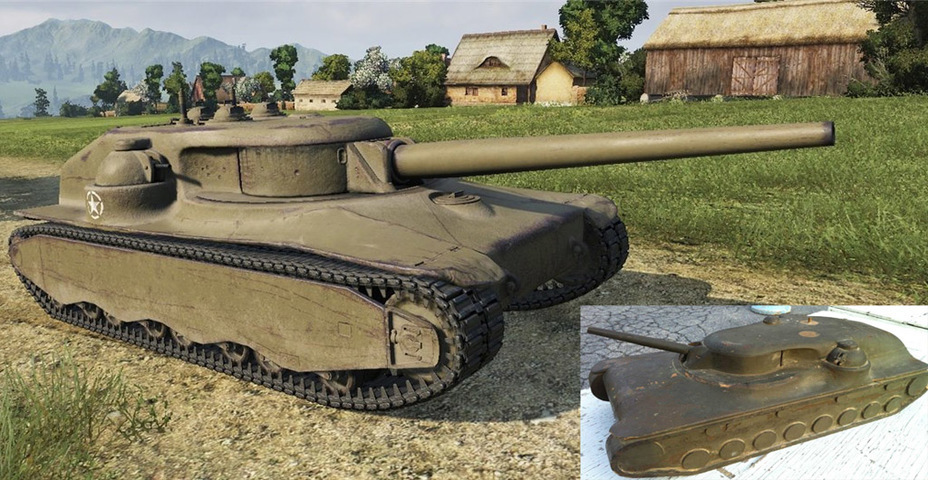
The design had two characteristic machinegun turrets on the sides. According to archive materials, there was also a four-track version of this vehicle.
The vehicle named T28 Prototype is much more interesting. Only its main characteristics are known, and the one drawing of this vehicle shows nothing about the layout of the fighting compartment. The result was a vehicle that is hard to call completely made up, but it's also highly unlikely that it could have looked like it does in the game.
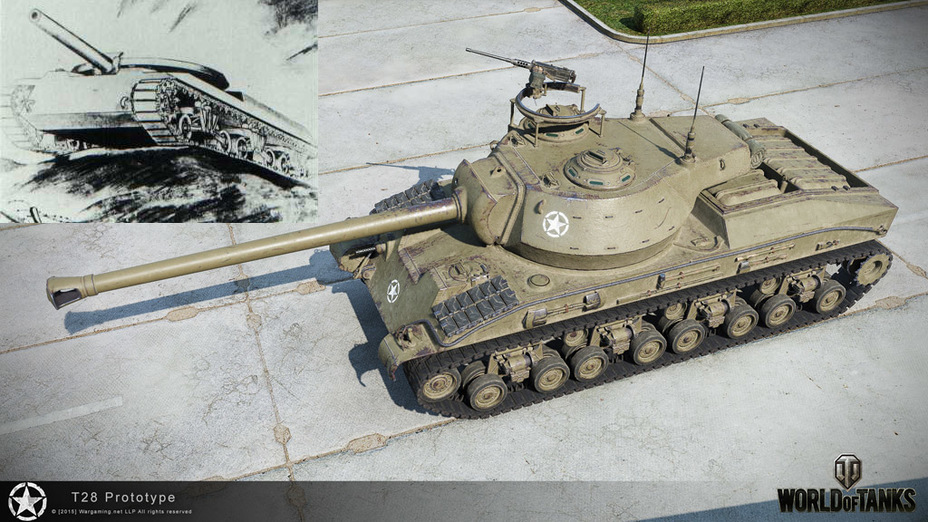
The situation with another tank destroyer, the T28, is even more comical. It was «made up» by removing the extra tracks of the T95. As it often happened, the «made up» vehicle was later found in NARA. Turns out that there were seven different variants of the T28/T95, but only one kind was ever built in metal.
The debated American tank destroyer branch is topped off with T110E3 and T110E4 vehicles. Let's start with the fact that, officially, these vehicles were not tank destroyers. As strange as it sounds, they were designed as tanks. Only the fifth variant of the T110 project had a turret. The rest of the heavy tank family was closer to SPGs, so they perform the role of tank destroyers in the game.
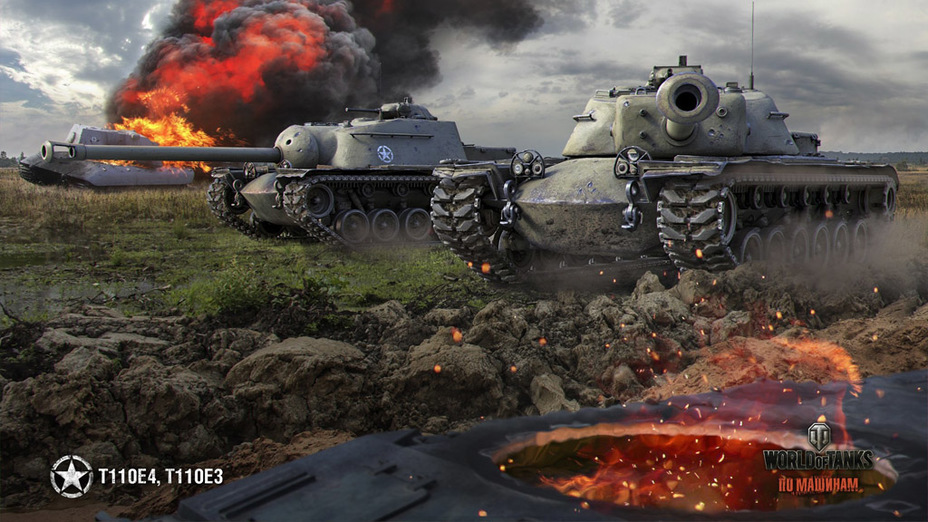
There are so many contradictions about these projects that there is no point in arguing about how realistic they are. In any case, the game designers did not invent them. As for the characteristics of these tank destroyers, they were set by the game's balance team. After all, World of Tanks is not a tank simulator.
The story of this tank is rather comical. It was made up by inattentive British historians. For a long time, there was a rumour about the FV214, also known as the Conqueror, being followed by another heavy tank with a rear turret. This laconic description was used to create the in-game tank.
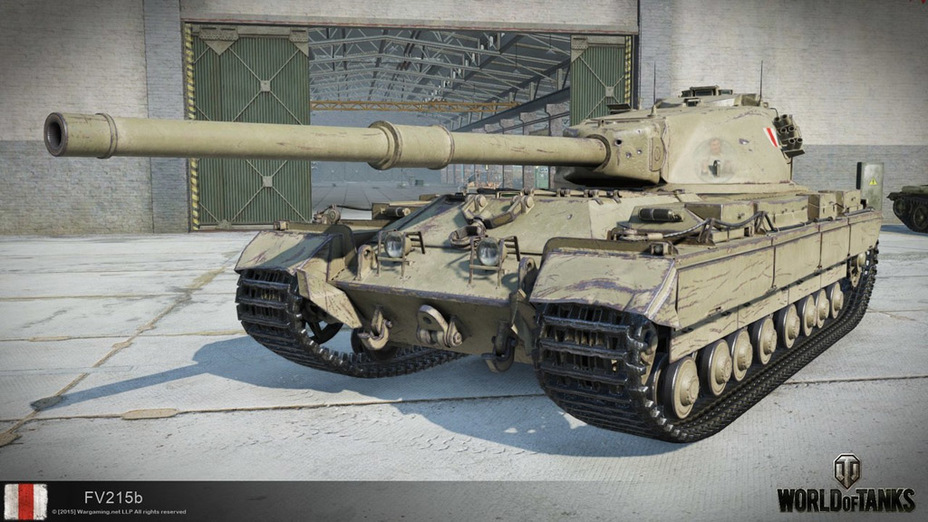
Later, when a group of enthusiasts began working in the archives, they discovered that this information was incorrect. In reality, the index FV215 was carried by another vehicle, also known as Heavy Gun Tank No.2, Heavy Anti-Tank SP No.2, and FV215 Heavy Anti-Tank SP No.2. In other words, it was a tank destroyer, and not a tank.
Unlike the FV215, a consequence of a mistake made by historians, the Conqueror Gun Carriage is a completely made up vehicle. It follows the logical progression of the line of SPGs on a Centurion chassis. While there is talk of replacing the FV215B, the Conqueror Gun Carriage is not threatened.
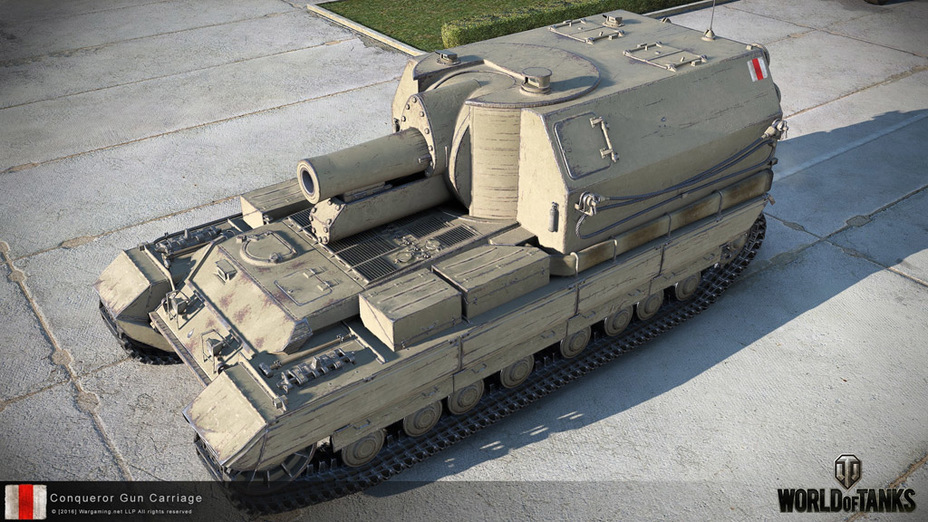
It's possible, of course, that a suitable replacement may be found in the depths of British archives. Similar things have already happened.
The question of a Czechoslovakian heavy tank is raised every so often, and the answer to that question is always a negative. However, recently declassified archives proved us wrong, and we are forced to eat our words. The Czechoslovakian heavy tank was found. It was designed in the mid-1950s. The tank was equipped with a 122-152 mm gun and had a turret in the rear. It was designed at the American Central Intelligence Agency.
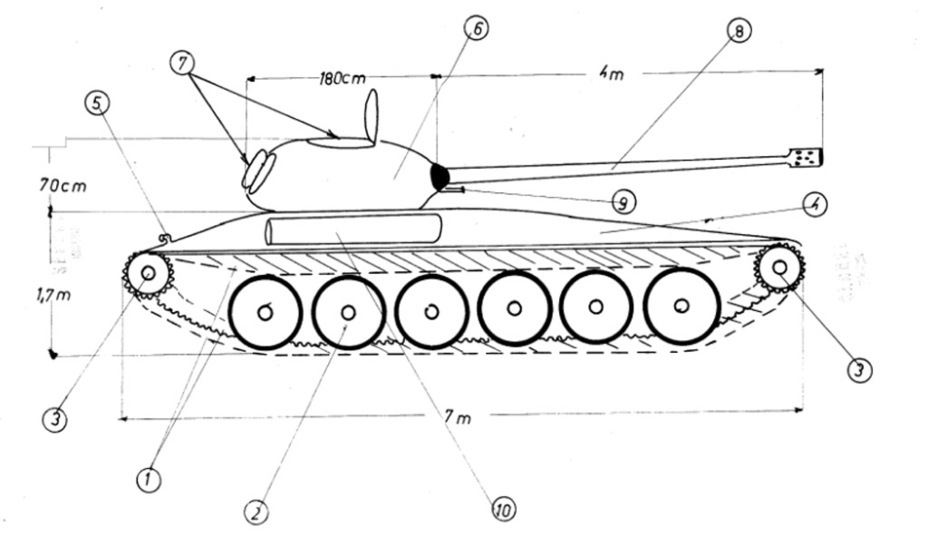
Of course, in reality, there was no such tank.
This is one case where someone's wild fantasies are better known than the real deal. Since the 1990s, books (usually Polish) show off a sketch of a tank called Polnischer Panzerkampfwagen T-39. It's often called the 14TP, a further development of the 10TP convertible drive tank. Of course, this is a fabrication that does not stand up to any scrutiny.
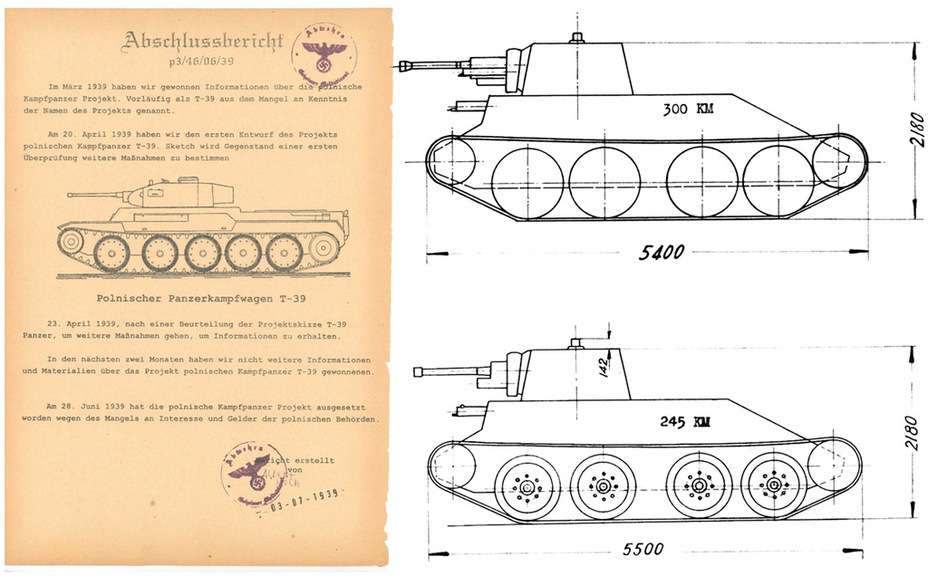
Nevertheless, a project called 14TP really existed. The issue of modernization of the 10TP after drawbacks were discovered during trials was being worked on in 1939. The tank became purely tracked, its armour increased, and its mass grew to 14 tons. There was also work done to install a more powerful 47 mm gun. The tank became an analogue of the Cruiser Tank Mk.IV, with superior armour and armament. The work did not move past sketches, but the documents on this project remained. You can see that it has little in common with the Polnischer Panzerkampfwagen T-39.
Unlike the 14TP, which was really worked on, this tank has no roots in reality. According to legend, it was designed by a professor of the Lvov Polytechnical Institute, Antoni Markowski. It was allegedly even included in the plans for modernization of the Polish army in 1940-45. The tank would have front armour 130 mm thick, sloped armour, and carry a 120 mm howitzer.
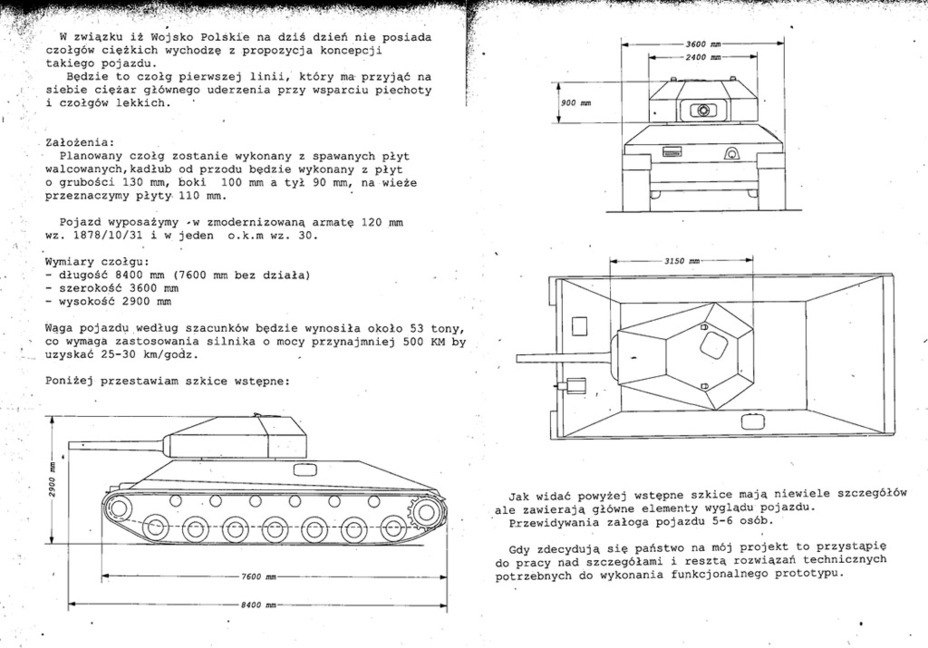
Research showed that this was little more than fantasy, created by people who wish to see a Polish tree in World of Tanks. There are about five such «designs» currently known. It's interesting that descriptions of similar projects were found, but they were written after the war, and the real work was destroyed. It's funny that most materials left have to do with Stanislaw Lem's tanks, who was not a science fiction writer yet. It's sad to say that if a Polish tree ever does appear in World of Tanks, more than half of it will consist of tanks like these.
Translated by Peter Samsonov. Read more interesting tank articles on his blog Tank Archives.
Sources:
- Carl Blomster's Archive Materials;
- National Archives and Records Administration;
- Russian State Military Archive;
- Archive Materials Central Intelligence Agency.
